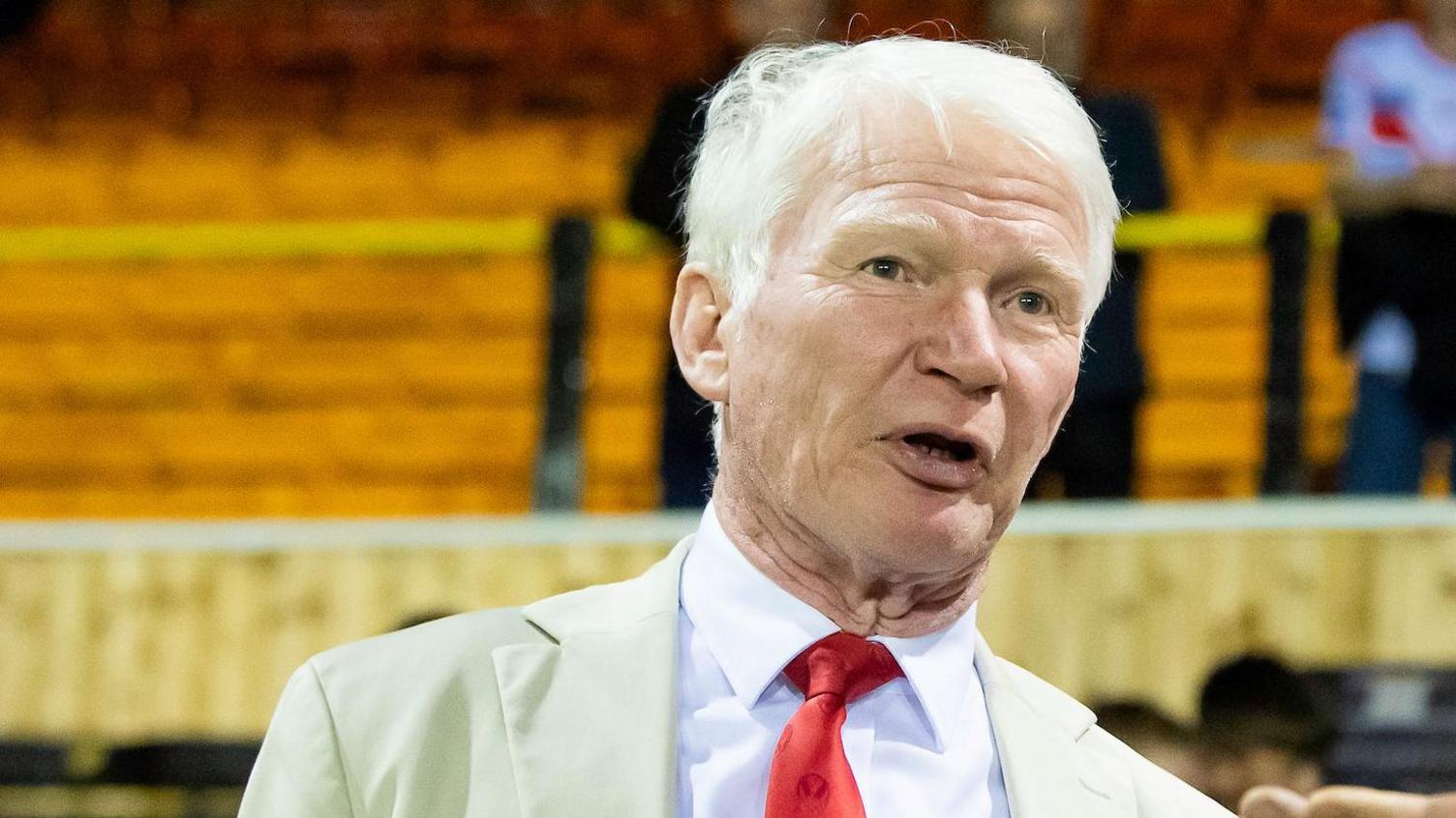Super League expansion can 'continue recent growth'

Eamonn McManus at St Helens, winners of the Super League Grand Final in 2022
- Published
Super League's expansion to 14 clubs for 2026 can continue the recent growth in competition within the league, St Helens chairman Eamonn McManus has said.
Last week rugby league's top flight announced it would expand from the 12 teams in time for next season, saying that the expansion would take place by combining the current club grading system with an independent panel chaired by Lord Jonathan Caine.
The top 12 clubs under the grading system at the end of 2025 are set to be joined by two clubs recommended by the panel "provided there are two applications of sufficient merit against the set criteria".
Under owner Derek Beaumont, Leigh have invested heavily since their return to Super League in 2023 and won the Challenge Cup that year, while Wakefield have been competitive under recent new investment and have impressed on their own return to the top flight this year.
In a statement on St Helens' website,, external McManus said: "Recent years have witnessed very significant levels of investment in a number of Super League clubs with new or additional owners. This has undoubtedly added to the competitive strength and prospects of the competition.
"To underpin and expand this trend through a robust and exhaustive independent selection process can only add to the growing investment momentum which individual clubs are experiencing – probably now at its highest level in the history of the game."
Super League to expand to 14 teams from 2026
- Published28 July
In 2026, the league will have 14 teams for the first time since 2014, after playing with just 12 for the 2015 season.
Clubs have been graded under media giant IMG and Rugby League Commercial's 'Reimagining Rugby League' initiative in the past two seasons, but only 2025's league structure has been decided by its criteria, which saw London replaced by Wakefield in the top flight for this term.
Under the system, Super League, Championship and League One clubs are assessed based on points calculated by on and off-field performance in order to decide who will make up the top flight, rather than promotion and relegation between the divisions.
McManus added that, with outside influences such as the NRL's expansion in the southern hemisphere and a potential breakaway league in rugby union, any additions to the Super League have to present a strong investment case to enhance the strength of the league.
"This decision now has to be supported and complemented by a stronger investment case being developed for the game itself," McManus added.
"Carefully and correctly selected competition growth can only enhance this essential objective."